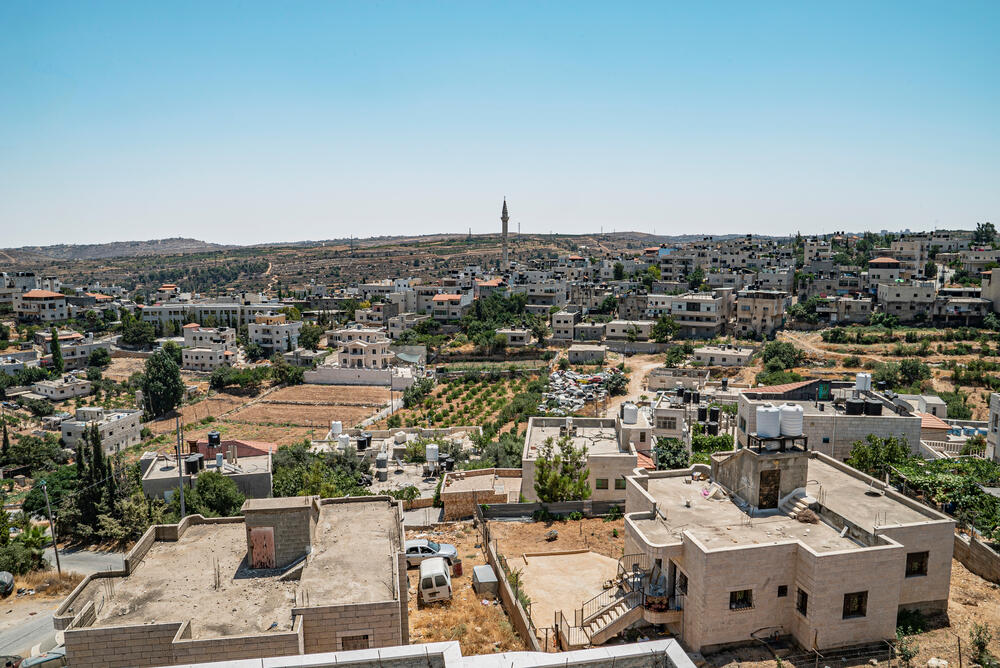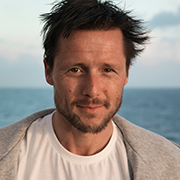Palestine: “Vaccine inequality is unjust and cruel”
As vaccine inequality becomes stark between nations, MSF nurse Matthias Kennes shares what he is witnessing in Occupied Palestinian Territory, where just a few miles away Israel holds a surplus of life-saving supplies.
As a medic, I am shocked.
The internationally-acclaimed COVID-19 vaccination success of Israel has a dark side – the consequences of which are being felt cruelly both in the West Bank Palestinian territory, where I work, and in the blockaded Gaza Strip where my colleagues work.
Israel has managed to vaccinate nearly 4.2 million people with a first dose – that’s around 50 percent of the population – and 2.8 million people with the full two doses – that’s more than 30 percent of the population.
Meanwhile, only several thousand doses are available in the Palestinian West Bank, and a delivery of 20,000 reported to have arrived last weekend in Gaza scarcely scratches at the surface of the needs.
At a generous maximum, assuming that the reported 35,000 Sputnik and Moderna vaccines are all available, that would be around 0.8 percent of the Palestinian population.
“If asked why vulnerable people cannot be vaccinated in Palestine, I do not know how to answer. It is inexplicable and unbelievable. Worse than that – it is unjust and cruel.”
To make that clearer, you are over 60 times more likely to have a vaccination in Israel than in Palestine.
Israel has a responsibility as an occupying power to ensure the medical supplies of the occupied population, including “adoption and application of the prophylactic and preventative measures necessary to combat the spread of contagious diseases and epidemics” to “the fullest extent of the means available to it.”
These are the words of the Geneva Convention.
Dying of hypoxia
I came to Hebron with an MSF team specifically to help with the COVID-19 response.
In December last year, when the second wave hit the West Bank, the Dura hospital – where we are supporting the medical teams – was full of COVID-19 patients.
Our work in Palestine: In numbers
750,100
OUTPATIENT CONSULTATIONS BY MSF IN PALESTINE IN 2024
9,370
SURGICAL INTERVENTIONS BY MSF IN PALESTINE IN 2024
875
MSF STAFF IN PALESTINE IN 2024
We treated mostly elderly people, many with underlying conditions such as diabetes or other chronic diseases.
Patients died. Sick COVID-19 patients have died in hospitals around the world, but these patients died on my watch, and that pains me.
Now, in eight of the 11 West Bank governorates, COVID-19 case numbers are on the rise again. In Hebron, this increase has been slow and steady for the past four weeks. I do not want to see any more patients dying of hypoxia – a lack of oxygen.
The vaccine is my hope to avoid this. It is also a source of despair.
The divide
A few kilometers away in Israel, all the vulnerable groups have been vaccinated and they are planning to move onto vaccinating healthy adults and youths, who are less vulnerable, especially to severe complications.
Here in the West Bank, there are around 10,000 doses, which is enough for 5,000 people to be vaccinated.
“As a medic, I don’t really care who sorts this out. As a medic, I do care deeply that the most vulnerable are prioritised.”
In the hospital where I work, staff have been offered the vaccine, but the available doses do not come close to covering all the healthcare workers. Let alone the elderly and people with medical conditions that make them susceptible to dying of COVID-19.
If asked why vulnerable people cannot be vaccinated in Palestine, I do not know how to answer. It is inexplicable and unbelievable. Worse than that – it is unjust and cruel.
We hear information about additional vaccines coming to Palestine from various donation mechanisms, but they are not here now. And a half-hour drive away, Israel has piles of vaccines and is moving onto vaccinating non-vulnerable groups.
Blockaded
I am outraged, but my colleagues in Gaza are even more so.
It has not always been easy, but in our Hebron hospital we were able to get most of the supplies needed for COVID-19. And, the MSF team was able to provide on-the-job training to help staff manage severely and critically ill patients – all of them needing oxygen.
But, in Gaza, they have much more severe shortages of medical supplies and pharmaceuticals because the blockade is so strict.
Their capacity for COVID-19 treatment is lower, so their need for the vaccine is all the higher. And the recent delivery of 20,000 vaccines will not be sufficient to protect both the healthcare workers and the people most vulnerable people.
Israel is an occupying power and has millions of vaccines. Palestine is the occupied territory and has barely a few thousand vaccines.
As a medic, I don’t really care who sorts this out. As a medic, I do care deeply that the most vulnerable are prioritised.
I am left with this shameful thought echoing in my mind… “60 times more likely to be vaccinated in Israel than in Palestine. The most vulnerable in Palestine still left unprotected…”

Help us prepare for the next emergency
MSF in Palestine
Palestine comprises parts of modern Israel and the Palestinian territories of the Gaza Strip and the West Bank.
This region, known as the Holy Land, holds religious significance for Christians, Muslims and Jews, and has been the object of conflicting claims, which has led to prolonged violence and, at times, open warfare.
Médecins Sans Frontières/Doctors Without Borders (MSF) first worked in Palestine in 1989.
Today, we provide medical and psychological assistance to people affected by the ongoing conflict, continuing our long-running mental health programmes on the West Bank and support to burns and trauma victims in the Gaza Strip.

